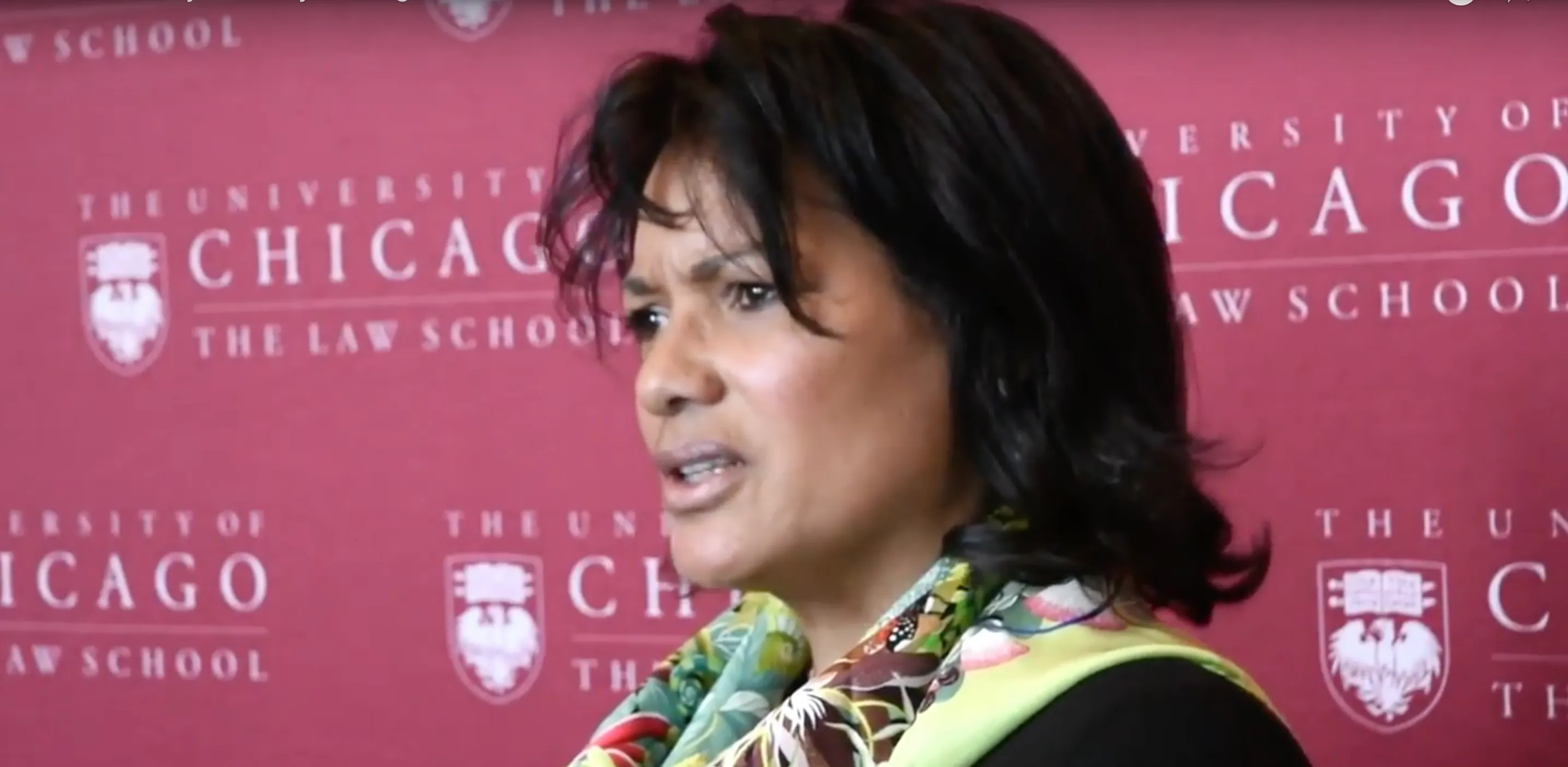My Chicago Law Moment: Sharon Fairley, ’06, Gained the Confidence to Solve Tough Problems

On Sharon Fairley’s first day of class at the Law School, Professor Douglas Baird welcomed everyone to the law. And then he said something that would stick with Fairley, ’06, for years: he told them that, as members of the justice system, they had a responsibility to do the right thing.
It was a simple statement, but those words would echo in Fairley’s mind for years as she worked as a federal prosecutor and, later, as Chicago’s First Deputy Inspector General. And she still thinks of them as she leads Chicago’s Independent Police Review Authority, the agency that investigates police misconduct claims. Fairley was appointed to the post in December 2015 in the wake of the Laquan McDonald case.
“Even though I knew I was going to become a lawyer, I hadn’t really thought about the responsibility that would come along with the profession,” Fairley said, recalling that moment in Baird’s class in 2003. “I really appreciated that, and it made me really excited. To this day, I still remember those words, and I remember that moment. [And I go back to it] when I’m thinking that I have to make the right call, and I have to do the right thing, and that I have to hold myself accountable to a higher standard.”
Fairley, who had already had a successful business career when she entered law school at age 43, knew she wanted to pursue public service. But it was at the Law School that she discovered her passion for criminal justice.
“I remember sitting in my criminal law class, and we were talking about the theories of punishment,” she said. “There was lots of good discussion … about the theories, whether it was retribution or deterrence or incapacitation—all those theories that you think about when [you consider] philosophically, ‘What’s the point of punishing someone?’ But that concept didn’t really ring true for me until I was a prosecutor, and I had to advocate for a particular kind of punishment or a particular length of punishment in a given case with a given defendant. I remember feeling the weight of that as a prosecutor. It was something I always took really, really seriously.”
In one memorable case, a 73-year-old defendant robbed a bank because he wanted to go back to prison; he’d been in and out of the system most of his life, and he wanted to “go home.”
“When it came time to decide what kind of sentence to advocate for, I was really conflicted because [throwing] the book at him, [would have been] giving him exactly what he wanted. You’re rewarding the behavior you’re trying to deter. It was a conundrum, but … I went back to the principles that I learned in law school.”
She addressed that conundrum in her filing, and ultimately did what she’d decided was the right thing: she recommended prison. The judge sentenced the elderly defendant to three years.
“There was something about going through the experience at the Law School that makes you believe that by the time you come out [you] can solve tough problems,” she said. “[You think,] ‘I can figure this out, I can pick this problem apart and put it back together in a way that makes sense.’”
My Chicago Law Moment is a series highlighting the Law School ideas, experiences, and approaches that have impacted our students and alumni. Video produced by Will Anderson.
